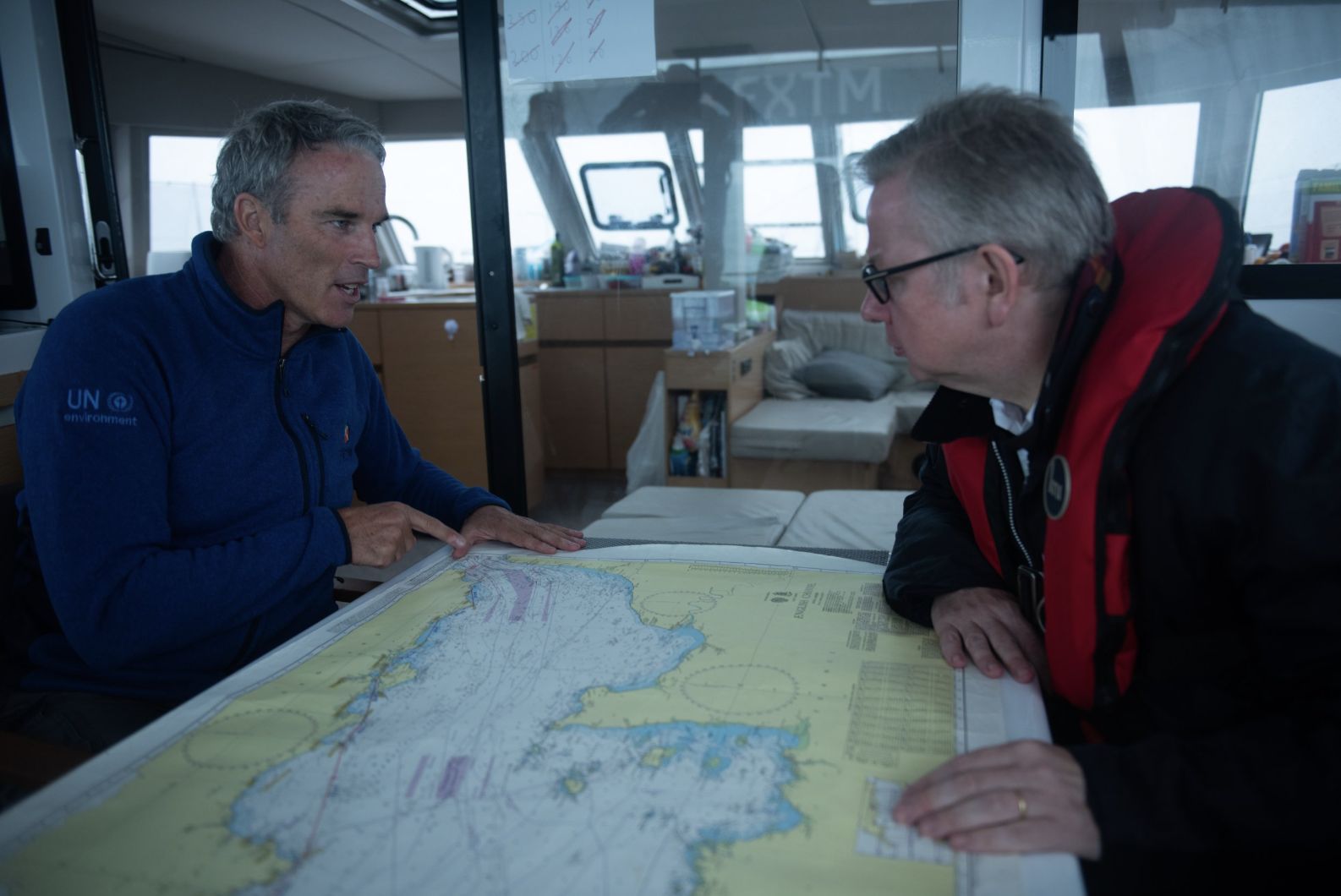One Year After the Long Swim
There is an old saying in English Channel swimming that most crossings are won or lost before the first stroke is taken. So last year, before I attempted to swim the length of the English Channel – from Land’s End to Dover - I made three promises to myself.
My expedition to Greenland started with an idea. I wanted to tell a story about what is happening in our polar regions. To demonstrate the speed and scale of the climate crisis. And take that message to Glasgow for #COP26.
Three promises
The first was that I would leave all my doubts at the start in Cornwall. The second, that I would swim 10km every day. The third promise I made was that if it was too dangerous to swim on a specific day, the following day I would do a double session.
These three promises steered me through the toughest swim of my life. I swam through storms, through injury, and through a number of large swarms of jellyfish. I was swept backwards around The Lizard, and I battled for three days to round Dungeness. Finally, after 49 days I touched the harbour wall at Dover.
Giving account
Since I completed my swim, the Government has, with the encouragement of all political parties, created 41 new marine conservation zones around England, fully protected a further 264,000 km2of sea around its territories in South Georgia and the South Sandwich Islands, and earmarked over 400,000 km2of sea around Ascension Island for full protection.
The Government has also agreed to review the level of existing protections in waters around England, with a view to increasing the amount of “Highly Protected” areas. I remain hopeful they will do the same with the 77% of waters around South Georgia and the South Sandwich Islands, which are still unprotected, as this is one of the most important wildlife hotspots on the planet.
Pioneering developments
In addition, the Government has banned some single-use plastics, which are polluting our beaches and killing our wildlife, and it has made a good start to reducing its own consumption. For example, the Foreign Office, with its embassies across the globe, has reduced its use of single-use plastic by 98%, and challenged other government departments to do the same. Sadly, we still export over two thirds of our plastic waste to developing countries, which is unacceptable.
But perhaps the most important development has been the announcement by Michael Gove that the UK will champion a global target of protecting 30% of oceans by 2030, together with Theresa May’s commitment that the UK will reduce its carbon emissions to “net zero”by 2050. Both announcements are pioneering. The latter will require the UK to completely change the way it does business.
Confronting the crisis
However, we are now in a race against time. The science is clear: if we do not protect our oceans and tackle the climate crisis head-on, we will face an existential threat to life on Earth. It is that simple.
For the new Prime Minister this will present a stark reality. Brexit may be the topic of the moment, but protecting the environment is the defining issue of our generation. Consequently, every day needs to be a day of action. As likely hosts of next year’s UN Climate Change Conference, all eyes will be on the UK. The UK Government will have to ask itself: “Is what we are doing today an adequate response to the Climate Emergency?” Despite the rapid progress made over the last year, the answer is: clearly not.
Exponential action
To achieve this, there must be a simple rule – each new government will need to be greener than the one before. And while we are now heading in the right direction, the next Government will need to be exponentially greener. We must be honest about this too – every year we will have to spend significantly more on the environment than previously.
The promises we make today are critical. They will hold us to account. And ensure that we honour our commitment to the future. In these dangerous times we all need to put in double sessions and leave our doubts behind.
Lewis Pugh is an endurance swimmer and the UN Patron of the Oceans.
This op-ed was first published in the Daily Telegraph on 16 July 2019.



